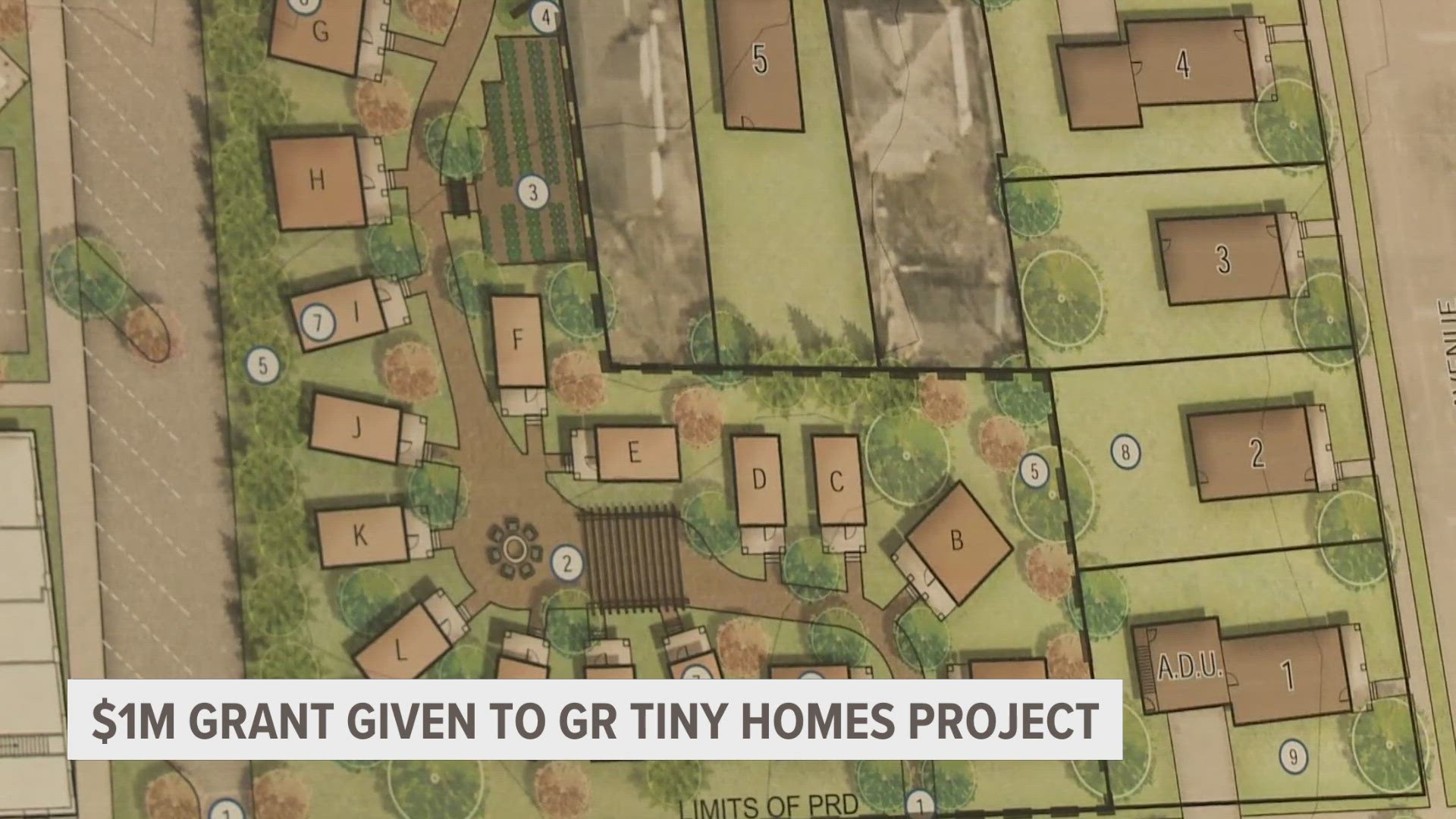GRAND RAPIDS, Mich. — As the demand for housing continues to grow— a pair of nonprofits in Grand Rapids landed nearly $1 million from the state to advance the tiny homes project in the city.
“We know that smaller footprint homes are a great solution to the overall housing challenge,” said Brooke Oosterman, executive director of Housing Next.
As the demand for housing continues to grow, Oosterman said this project is a step in the right direction.
“What we know is that household size is shrinking, right? So whether it is our boomer population, our millennial, millennial population, the two largest demographics have smaller households and are looking for smaller footprint homes,” said Oosterman.
The long-awaited tiny homes project gears toward formerly homeless individuals.
Looking back on her last two terms, on Election Day, Mayor Rosalynn Bliss told 13 ON YOUR SIDE that housing was one of the issues she wanted to resolve in the city.
“I’m in the midst of this one hundred in one hundred initiative, trying to get one hundred individuals who’ve been chronically homeless, housed in one hundred days. We’ve done a lot of work around homelessness in our community. I feel good about some of the work we’ve done in that space, there's clearly more to do,” said Mayor Bliss.
Grand Rapids-based Mel Trotter Ministries and its subsidiary Next Step of West Michigan will begin pouring concrete foundations over the next couple of weeks for a 16-unit tiny homes project. The tiny homes are part of the Hope Village project on a 1.65-acre site at 101, 119 and 135 Garden St. SE in Grand Rapids.
“Many of us started in a small footprint home, right? And so it really is the starter home that's missing. So this would give people an opportunity, you know, the smaller footprint homes give people an opportunity to match their preferences, their lifestyle preferences, their affordability preferences, and ultimately be more connected to community,” said Oosterman.
Kent County currently needs 35,000 more units by 2027 to fulfill their housing demand. Oosterman said over the last few years, there’s been a high demand for smaller-footprint homes in the area due to their affordability.
She hopes the community will be open-minded about the new tiny homes project.
“People assume this is brand new. One thousand square feet isn't new. When we're talking about just being innovative and allowing for choice in the market, we are talking about things that we've seen before and just reconfiguring and reevaluating what we've done over the last couple of decades to match the needs of the community the needs of current and future residents,” said Oosterman.
Crainsgrandrapids.com reports that Mel Trotter has about $1 million left to raise toward the $2.8 million budget for the tiny homes. About 82 individual donors and foundations have contributed through the nonprofit’s Immeasurably More 2023 capital campaign.
The first eight tiny homes are expected to be completed next year. The rest will be done by 2026.

